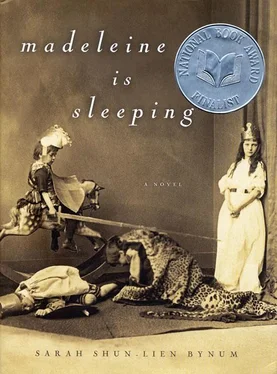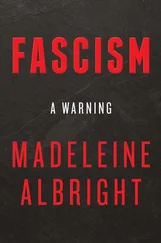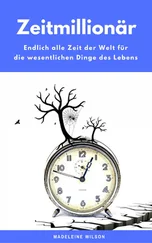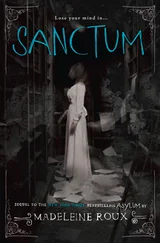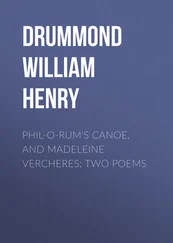Sarah Bynum - Madeleine Is Sleeping
Здесь есть возможность читать онлайн «Sarah Bynum - Madeleine Is Sleeping» весь текст электронной книги совершенно бесплатно (целиком полную версию без сокращений). В некоторых случаях можно слушать аудио, скачать через торрент в формате fb2 и присутствует краткое содержание. Год выпуска: 2008, Издательство: Harcourt, Inc, Жанр: Современная проза, на английском языке. Описание произведения, (предисловие) а так же отзывы посетителей доступны на портале библиотеки ЛибКат.
- Название:Madeleine Is Sleeping
- Автор:
- Издательство:Harcourt, Inc
- Жанр:
- Год:2008
- ISBN:нет данных
- Рейтинг книги:5 / 5. Голосов: 1
-
Избранное:Добавить в избранное
- Отзывы:
-
Ваша оценка:
- 100
- 1
- 2
- 3
- 4
- 5
Madeleine Is Sleeping: краткое содержание, описание и аннотация
Предлагаем к чтению аннотацию, описание, краткое содержание или предисловие (зависит от того, что написал сам автор книги «Madeleine Is Sleeping»). Если вы не нашли необходимую информацию о книге — напишите в комментариях, мы постараемся отыскать её.
Madeleine Is Sleeping — читать онлайн бесплатно полную книгу (весь текст) целиком
Ниже представлен текст книги, разбитый по страницам. Система сохранения места последней прочитанной страницы, позволяет с удобством читать онлайн бесплатно книгу «Madeleine Is Sleeping», без необходимости каждый раз заново искать на чём Вы остановились. Поставьте закладку, и сможете в любой момент перейти на страницу, на которой закончили чтение.
Интервал:
Закладка:
instinct
at the far edge of the orchard Madeleine freezes. What is that found? A howl of fury, a long barking cry. Like a lick of flame it flares up from the shed in the distance, threatening to burn down the whole world around it. My home is not my home, it cries, my children not my children; all that I thought was mine is alien to me, Like the smell of smoke it snakes its way to where Madeleine stands frozen; it sets the apple leaves trembling, lifts the birds from where they feast upon the orchard floor. And Madeleine herself, like a wild forgotten thing, begins to stir: her ears prick, her eyes water, and bringing them up to her mouth, she cups her misshapen hands and lets out her own long howl of sympathy.
stirring
Madeleine stirs IN her sleep. Her eyelids flutter open. What is that sound? From deep inside her dream she heard it: a wail. An inconsolable cry. It is a voice she thinks she recognizes, and sliding out from beneath her covers, she steals off into die orchard to meet it.
beating
the brothers and sisters cannot sleep, with Mother outside in the yard and still angry. Thunk, thunk beneath their window: quickening like a heartbeat, while the children lie stiff in their beds fearing that, in her excitement, Mother might send fruit hurtling through the glass. Pitched with enough force, an underripe pear could leave a small person unconscious. Claude thinks it would be wise to slip off and make himself scarce. Down the ladder he goes, into the larder, filling his pockets, feeling the floor grave-cold beneath his feet, dreaming of what he will find inside the barn. Not a proper cowshed like their own, with a pony cart and six cows and a collection of deadly tools, hung in descending order against the wall; but a forgotten barn, a skeletal barn, where he is not allowed to go. That is where the half-wit once slept, the moon coming through the rafters and casting him in white stripes. But tonight, the boy dreams, the barn is thick with ’ an apple smell and small rustling noises, the titters and sighs of girls settling into sleep: three of them, he now believes, most definitely | three. Three girls flickering through the branches, roosting inside the forbidden barn and he, Claude, the only one to know of them. They must be hungry, he thinks as he touches his swollen pockets. And then his heart stops; for that other heartbeat, thick and wet, has stopped too. I’m through, he thinks, his hands crammed in his pockets. But then it resumes — thunk, thunk— and the boy steps out into the night.
lunar
seeing the moon through the rafters, Madeleine remembers other moons, the same moon: a grey coin dim in the window above her siblings’ bed; a golden balloon snagging upon the spires of a city, the sliver that curved away from her as she tumbled off a caravan’s slick roof. What moon, she wonders, is looking down upon the hospital at Maryville? Why, a moon as round and mild as her own face, with eyes set far apart, the forehead high. Shedding light as she once shed droplets of water, her face emerging from the basin. A half-smile, a pox scar, a pair of eyebrows pale as wheat. Madeleine is moon-faced, her mother would say as she handed her the towel, and from that fact deduce a hundred other things, among them a guileless nature, a love of cream. But did she know this luminous face would wake inmates in the asylum, make women bleed, open night-blooming vines, pull everything irresistibly towards it? Inside the hospital at Maryville, the photographer turns the flatulent man to the window and says, Look.
anatomy
but m. pujol cannot look; he is too distracted to look. For the photographer has stepped out from behind his equipment. He has placed his hands on the flatulent man’s shoulders; he has kept his hands on the trembling shoulders; he has turned him to the window under the guidance of his hands. M. Pujol is now familiar with names, due to the great black anatomy book the director has been kind enough to share with him. So when the hands slide downward from his shoulders, M. Pujols first thought is, My scapulae. These are the two triangular blades. Thinking such thoughts, recalling such names, might possibly prevent him from trembling. As the hands travel, so do his thoughts: There are my vertebrae, he thinks, as the hands drift ever downwards to the sacrum. The sacrum, the sacred bone, the spot where his fluttering soul resides. On this point, and on many others, M. Pujol is in accordance with the Greeks. Not the heart, nor the head, but the very bottom of the spine: this is where the photographer will find him. Upon reaching the crossroads — my sacroiliac, he gasps — the two hands part company, one turning to the west, the other to the east, and on its own each traces the crest of his hipbones. As the hands advance along the ilium, he feels a pair of lips upon his neck. Lips, plural; neck, the nape of — but already the name for lips, the name for neck, have escaped him.
under the gaze of the moon
M. PUJOL CLOSES HIS; relinquishes names; makes his surrender. It is as she wishes.
waxing
as Claude stumbles through the orchard, his expectations take on form, enormous size. They will have soft fingers. And gleaming hair. Their nipples will be tiny and wild as strawberries. In an interesting coincidence, Claude found a patch of berries last summer behind this same barn. He kept them to himself. He made visits when no one was looking. And remembering how shyly the berries appeared when he lifted up the canopy of their leaves, Claude pictures the girls’ sleepy faces, their looks of surprise. How delighted they will be to see him. The barn is bathed in moonlight. Claude presses his face to a crack in the door. He wants simply a glance, an unhurried glance, before he comes in and startles them. Maybe he will catch them as they are brushing each other’s hair, or softly embracing, or kissing good night. Coundess entrancing scenes could await him, but when he presses his face to the crack in the door, the sight he finds disturbs him. There is only one girl, not three. She is lying on the floor of the barn. She is small, and wearing a filthy party dress, and appears to have been dropped down from another world. But not in the pleasant way he was expecting. Her body lies rigid except for her hand, which is tucked between her legs and moving desperately Though her face is turned away from him, Claude believes that its expression must be of suffering. Look at the violence she does to herself She is in thrall to that furious hand. He forgets the nipples, the shining hair: his thought is to save her, to knock down the rotting door and make it stop. But there is something in the way she stiffens that tells him such a rescue would be unwelcome. That annihilation is in fact her purpose. That she wants nothing more than this hand, this moon, this forgotten bam, conspiring to release her, to rub her out. Claude knows where he’s not wanted. He has several sisters, an older brother; he is familiar with the feeling. His hopes and gifts hang heavily on him. As he backs away from the awful bam, he empties his swollen pockets of their sausages.
waning
THE photographer lifts his mouth from the neck of the flatulent man, and the moon turns away from them, diminished. Her hand drops to her side.
buried
IN the morning Madeleine finds, lying on the ground, three sausages. Not wrapped in brown paper, or set on a plate, but poking out from the spiky grass that grows alongside the bam, as if the earth itself had offered them up overnight. They are good-looking and smell quite deliciously of garlic. Madeleine knows that some further investigation is probably required, but she is hungry, and blessed, according to her mother, with the stomach of an ox. All that’s needed is a little knife, some radishes. Without thinking, she pushes her hands into the soil and feels about It is not a wishful or improbable thing to do. Her father once found a coin. Another man, a pale blue bottle. Why not a knife? Or, for that matter, a copper tub, a flask of wine, a rolling pin? A king’s kitchen could be waiting down below, all flashing utensils and giant vats, the cook with her cleaver raised, the scullery maid weeping, their poor old mouths filled with dirt. What’s that rumbling then, but the heave-ho of the earth sending up its lost city, its thoroughfares and byways, its traffic jams and slop jars, broken hearts, stillborns, waiting rooms, concert halls, card games and night terrors, its quick-witted children, its constables and beggars, usurers, pilots, its laughing women, its libraries, its collection of familiar, half-forgotten lives? It could be the sound of a girl’s empty stomach. Madeleine sinks her ear into the ground and listens: yes, there it is, beneath the tumult of her blood, a tapping. From the city down below, a sound; a sign. The knife against the chopping board? The cook putting down her cleaver? Tap-tap, it says, then hesitates. A blind man’s cane. A teacher’s ruler. Tap-tap, it says again and all at once she knows: stacked heel. Worn floorboards. A hesitation in the step, a stutter* Should he draw the sword here? Or wait until the final line? Should he pause before the ‘O’? The tap-tapping of an actor, pacing. He turns his eyes to the soil-black heavens and sighs; she hears now only the anguish of the ‘O’! And in this very place, she knows, there was once a stage.
Читать дальшеИнтервал:
Закладка:
Похожие книги на «Madeleine Is Sleeping»
Представляем Вашему вниманию похожие книги на «Madeleine Is Sleeping» списком для выбора. Мы отобрали схожую по названию и смыслу литературу в надежде предоставить читателям больше вариантов отыскать новые, интересные, ещё непрочитанные произведения.
Обсуждение, отзывы о книге «Madeleine Is Sleeping» и просто собственные мнения читателей. Оставьте ваши комментарии, напишите, что Вы думаете о произведении, его смысле или главных героях. Укажите что конкретно понравилось, а что нет, и почему Вы так считаете.
